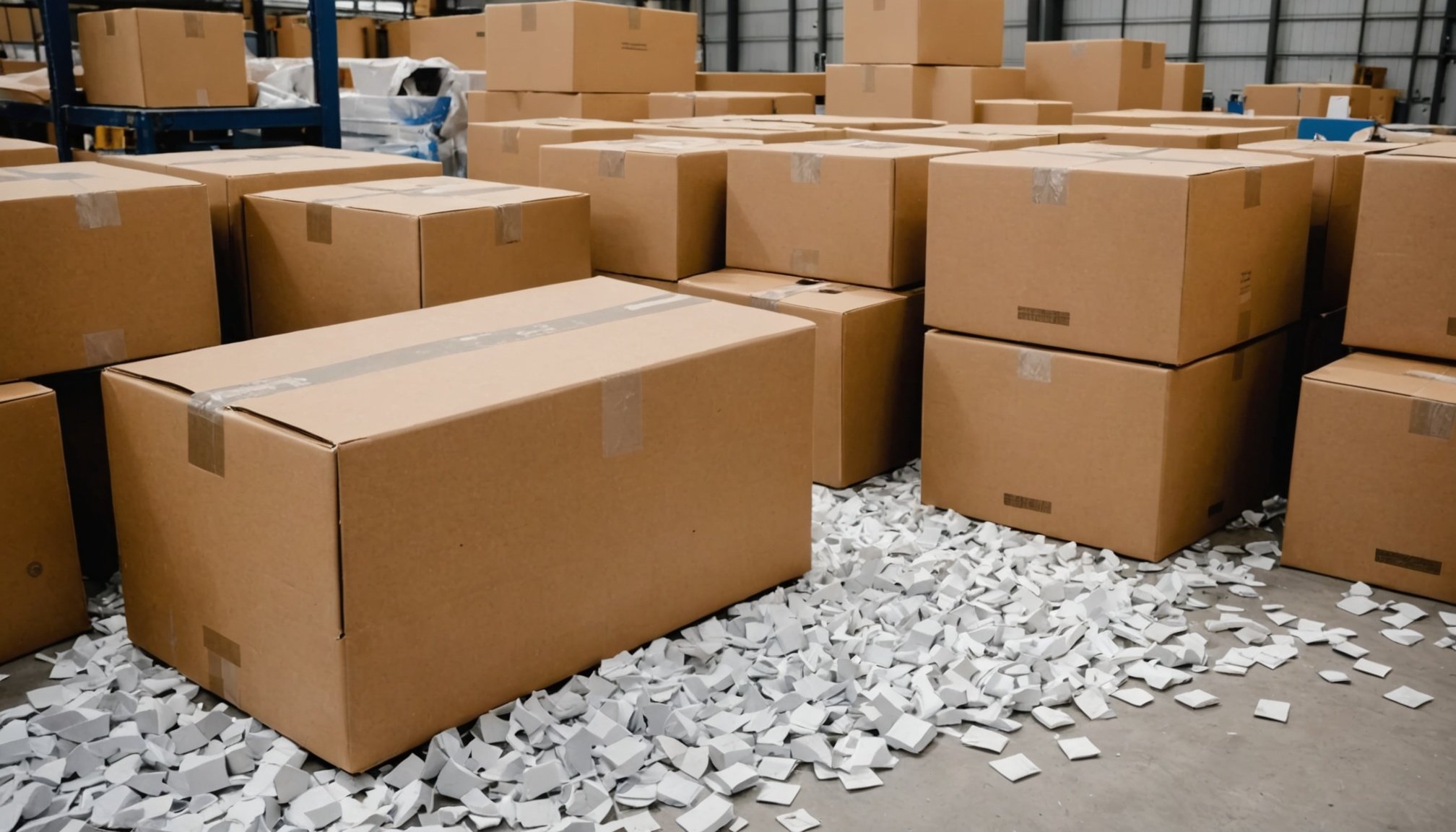Overview of Packaging Waste Regulations
The Packaging Waste Regulations in the UK are designed to manage and reduce the environmental impact of packaging waste. Their purpose is to ensure that businesses take responsibility for the packaging they produce or handle, ultimately aiming to reduce landfill waste and encourage recycling. Compliance with these regulations is critical for any business operating in the UK, as it not only aids in environmental preservation but also helps avoid potential penalties and legal repercussions.
Businesses are required to register and report their packaging waste activities, ensuring accurate records are kept of the materials they produce and handle. The UK Compliance obligations include meeting specific recycling targets and contributing financially to waste management efforts. Key stakeholders in these regulations include manufacturers, packers, distributors, and retailers, each having a designated role in adhering to the rules and contributing towards sustainable packaging solutions.
Also read : Top data protection tips for uk businesses: securing your information when outsourcing it services
Understanding these responsibilities is vital for businesses to align with business responsibilities laid out by the government, fostering a collective effort to tackle packaging waste. By engaging in these efforts, companies not only comply with legal requirements but also contribute positively to environmental conservation.
Legal Obligations of Businesses
In the intricate realm of legal responsibilities, businesses must navigate the Packaging Waste Regulations with precision. These regulations, crucial for maintaining environmental standards, require companies to manage their waste, ensuring that packaging materials do not harm the ecosystem. Businesses are mandated to recycle or recover a set percentage of packaging waste, depending on the types of products they handle.
Also to discover : Essential Legal Factors UK Businesses Need to Navigate When Implementing AI for Fraud Detection
The essential obligations encompass identifying packaging materials appropriately. Businesses must ensure that they are labelling correctly and accurately reporting the use of materials such as plastic, paper, and metal. This aligns with their commitment to sustainability and compliance. These obligations are critical, as they influence both operational practices and corporate responsibility agendas.
Compliance with these regulations is not merely theoretical; it involves strict compliance requirements and a set timeline. Implementation occurs in phases where businesses must adhere to deadlines for reporting, recycling, and waste management targets. Failure to meet these obligations may result in penalties or legal actions, compelling businesses to maintain meticulous records and follow the guidelines closely.
Understanding and embracing these legal responsibilities form the backbone of ethical business practice, while simultaneously ensuring companies contribute positively to environmental conservation efforts.
Registration Requirements
Navigating the registration process is crucial for many businesses to ensure they are in compliance with legal obligations. Understanding who must undergo producers registration and what the necessary steps are is essential for legality and smooth operations.
Who Needs to Register
Primarily, businesses involved in the production, importation, or sale of goods often face the obligation to pursue compliance registration. This includes manufacturers, distributors, and retailers. Companies involved in any form of waste treatment also typically fall within this bracket. If your business provides these services, the registration process should not be ignored.
Registration Thresholds
Registration thresholds determine whether a company is required to register. Companies above certain turnover figures, typically stipulated by regulatory bodies, will need to register. It is vital to be aware of these thresholds which may vary by region:
- Turnover exceeding a specified amount
- Volume of goods produced or handled
- Type of waste managed
How to Register
The registration process generally involves several steps:
- Gather necessary business documents (e.g., financial statements).
- Ensure understanding of the relevant legal criteria for producers registration.
- Complete the online registration form available on respective government websites.
- Submit all required documents and pay any associated fees.
Thus, understanding and fulfilling these steps is essential for lawful business operation.
Recycling Targets and Obligations
Recycling targets are essential benchmarks established by regulations to ensure environmental compliance and encourage waste reduction. These targets vary based on factors such as the type of packaging materials used and the category of the business involved. Businesses are legally obligated to adhere to these standards to contribute towards a more sustainable future.
For distinct types of businesses, there are tailored obligations depending on their packaging materials. For instance, a company utilising plastic packaging may have different recycling requirements compared to one using paper or glass. Each sector has specific quotas to meet, reflecting their environmental footprints and influencing their operational strategies. These obligations can potentially propel waste reduction efforts and enhance sustainable practices.
Businesses can employ various strategies to meet and exceed these recycling targets. Implementing a comprehensive waste management plan can effectively track and manage recycling efforts. Additionally, investing in advanced recycling technology or collaborating with reputable recycling partners can streamline processes and improve efficiency. By focusing on these strategies, companies can not only achieve compliance but also position themselves as pioneers in environmental responsibility. Through regulations, businesses are motivated to innovate and evolve, ultimately benefiting the planet and setting a powerful precedent for future sustainability endeavours.
Penalties for Non-Compliance
Failure to adhere to packaging waste regulations can lead to significant non-compliance penalties. These are intended to enforce adherence and maintain environmental standards. Penalties may vary but often include hefty fines, mandatory corrective measures, and increased scrutiny from regulatory bodies. The severity of these penalties often reflects the level of non-compliance and its environmental impact.
Enforcement actions are systematic and can involve audits, inspections, and legal proceedings. Regulatory bodies are empowered to perform regular checks to ensure businesses comply with set standards. Non-compliant entities may face not only financial penalties but also damage to their reputation and potential operational disruptions.
Legal ramifications may extend beyond fines. Companies might encounter litigation from government entities or even private parties affected by their non-compliance. Being subject to court action can be costly and result in long-term operational interruptions.
Illustrative case studies highlight the serious consequences faced by companies that neglected compliance. For instance, certain corporations have paid millions in fines and undergone significant restructuring to align with legal requirements. These examples serve as deterrents for others, showcasing the importance of adhering to environmental regulations to avoid penalties and maintain operational integrity.
Best Practices for Compliance
Navigating compliance in today’s business world, particularly with sustainable packaging, requires businesses to implement best practices. Establishing effective compliance programs is crucial. This involves setting business guidelines that align with regulatory requirements and sustainability goals.
Implementing Compliance Programs
Implementing compliance programs begins with a clear understanding of applicable legal frameworks. Companies should develop business guidelines that incorporate sustainable packaging principles. These guidelines should be regularly reviewed and updated to ensure ongoing adherence to compliance standards. Having a dedicated team or officer to oversee compliance can significantly enhance the program’s effectiveness. Their role includes ensuring that all packaging meets sustainable regulations and that any updates to laws are promptly integrated.
Leveraging Technology for Compliance
Leveraging technology is a practical approach to managing compliance. Utilizing technology solutions can streamline the process of tracking packaging waste. Solutions such as software platforms can automate waste data collection, ensuring accurate reporting and easier identification of compliance gaps. These technological tools can offer real-time insights and forecasting, helping businesses anticipate changes in compliance requirements.
Employee Training and Awareness
Training staff on legal obligations and sustainable practices is vital for fostering a culture of compliance. Comprehensive training programs should focus on educating employees about the importance of sustainable packaging and understanding relevant laws. When employees are aware of their roles in environmental responsibility, compliance becomes a shared organizational goal.
Resources and Further Reading
When navigating complex compliance requirements, having access to comprehensive resources is essential. To assist businesses in understanding regulations, several official websites and documents provide valuable information. For instance, official documentation from government websites such as GOV.UK and the U.S. Securities and Exchange Commission (SEC) offers authoritative insights into various regulatory frameworks.
Recommended guides are particularly beneficial for businesses aiming to ensure compliance. Publications from industry experts like the ISO (International Organization for Standardization) and the Institute of Internal Auditors (IIA) offer detailed guides on best practices. These resources help businesses remain informed about changes in the regulatory landscape and adopt effective compliance strategies.
For those seeking legal assistance or compliance consultation, contacting experienced professionals is advisable. Law firms specializing in corporate compliance and consulting agencies offer tailored advice to navigate specific legal challenges. Establishing a connection with these professionals enables businesses to address concerns proactively and avoid potential pitfalls.
To streamline your compliance journey, consider exploring the above-mentioned resources and additional guides. These tools are designed to support businesses in maintaining compliance standards and achieving long-term success.













